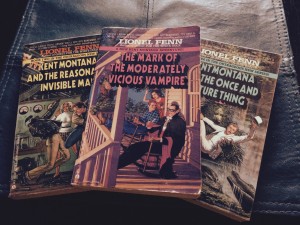It appears to be my month for sitting down with things I remember as being feather-light entertainment.
Why Found-Again? I didn’t catch much of this show during its original run in the 1990s, and it’s been about 7 years since my last viewing—during which I horrified a friend by vocally cheering for one of the show’s recurring villains, to the surprise of no one who reads this site. (This is one of those actors-I-will-follow-to-the-gates-of-hell things: I’m pretty sure I will never not root for Lane Davies, who played Tempus on L&C and whom astute readers will note was Mason Capwell in that Santa Barbara video I linked for a Highlander post a while back.)
The Premise: Clark Kent/Superman gets a job as a reporter, falls for Lois Lane, pals around with Jimmy Olson, fights Lex Luthor and others—you know, the standard Superstuff.
Two things distinguish Lois & Clark from other takes on Superman, though, and the first is that this isn’t a take on Superman so much as on Clark Kent, that nice guy with the glasses who will get you the best Chinese takeout because he can secretly fly to China. These incidental uses of Clark’s powers form my favorite parts of the show: one episode’s opening sequence has him playing baseball by himself. Part of Clark’s charm may well stem from the second change: in this version, his adoptive parents are still alive and very much in evidence.
One thing I always forget about Lois & Clark is how gorgeous it is. Perhaps to offset the guy in the bright red-and-blue suit, the sets are saturated with color, and the offices of The Daily Planet are a mix of the stately old and—for the ’90s—shiny new. Pure dumb luck placed the show a a time, technologically, when every gadget shown would seem hopelessly outdated in a few years; by now, the effect is almost like steampunk (what would you call that: faxpunk? beeperpunk?). Rewatching offers a timely reminder that superheroes, even those who are a current focus of the dreaded gritty reboot, can work as fun.
The Verdict: I am baffled by how little nostalgia there seems to be for Lois & Clark. While it didn’t exactly break new ground and could be contrived from time to time, the show on the whole is as handsome and charming as its main character. It may have been cheese, but if so, it was the TV equivalent of Barely Buzzed.
Might go well with: Junk food—and now that I mention it, that’s some good cheese up there in the link.
…Oh, what the heck: Tempus!
Next time: I finish my overview of Highlander: the Series, with mention of Methos and a few other things.
